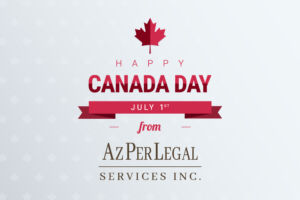You have made the decision to go it on your own…to strike out on your own path and make your fortune. Congratulations!!! But now what? You are so excited but now all of these questions about how you want to form and run your business are weighing you down and creating endless confusion and anxiety.
To Incorporate Or Not to Incorporate
One of the first questions is whether you should incorporate your business or not. One of the most common factors in determining whether you should incorporate is the profitability of your business. Typically, if your business nets over $30,000.00 annually, it is highly recommended that you incorporate your business. That is all well and good but how do you know whether you will be making that much off the bat? In some cases, people can make that determination, however, in a lot of cases, you can’t.
If you wish to simply run your business without incorporating, you will be what is defined as a sole proprietor. A sole proprietorship is when one individual (the sole proprietor) operates a business without any formal business structure in place. It is the most simple of all business organizations as there are no formal organizational requirements nor are there requirements for an internal business structure. One person (the sole proprietor) runs the business. The business itself is not an entity separate and apart from the individual. What this means is that the sole proprietor (the individual) has unlimited liability for all of the debts and liabilities of the business. On the flip side, the sole proprietor owns all of the assets of the business. All of the income of the business forms part of the personal income of the sole proprietor and is taxed accordingly. When the sole proprietor retires or passes away, the business dies or retires with him/her.
In layman terms, this means that you will take in income from your business and pay debts and liabilities of the business as if they were your own debts, your own liabilities and your own income.
At the end of the year, your accountant, or you, if you are proficient in this area, will file your personal income tax returns which will reflect the income generated by the business as well as the debts incurred by the business (I am not an accountant so cannot speak to what types of “write-offs” exist for sole proprietors).
Drawbacks of a Sole Proprietorship
The biggest drawback to running a sole proprietorship is that you personally will be liable for the debts of your business as well as its liabilities. What are the liabilities? Liabilities are those amounts owed by a business at any one time, including litigation. Litigation??? Let’s say you own a small business and someone slips and falls when they visit your store. If they decide to sue your business, you will be personally liable for any judgment that may be granted by the Courts. Insurance can handle some of these issues, but not all. If someone sues you for non-payment of business debt and they are successful at trial, you will be personally responsible for payment of that debt. The successful party can garnishee your wages, seize your personal assets and force you to sell your home to obtain payment of that debt.
If you are running your business as a sole proprietor and you are offering goods and/or services, you can either run the business under your own name or under a different name. If you wish to use a name other than your own, i.e. Gerrit’s Meat Cutting, or for trading, manufacturing, contracting or mining purposes, you must register your name, defined as a “trade name” with Alberta Corporate Registry. Any sole proprietorship operating a business under a name other than the legal name of the sole proprietor is required, under the Partnership Act, to register its trade name with Alberta Corporate Registry.
Trade names
Trade names are not to confused with corporate names or trademarks. Corporate names are legal names under which a registered corporation with Alberta Corporate Registry operates. Corporate names contain a legal element such as Ltd., Limited, Corp., Corporation, Inc. or Incorporated. Trade names cannot use any legal element in their name. Trademarks are names or logos registered with the Registrar of Trade Marks and provide the individual or entity registering the name or logo with ownership of the specific name or trademark. Coca Cola, Pepsi, McDonald’s, are examples of trademarks.
Registration of Trade name
Registering a trading name does not provide a sole proprietorship with proof of ownership of that name; it provides the registrant (the declarant) with the use of that name from the date of registration. Name rules for trade names are governed by s. 110 of the Partnership Act. The main purpose of registering trade names is to provide the general public with certain information about the identity of the sole proprietor operating the business.
The Partnership Act nor the Business Corporations Act provides any protection to a sole proprietor against another individual or business registering a trading name or incorporating under a name similar to their own. What if this happens though? What if someone, after you have registered your trade name, opens and runs a business with a name identical or very similar to your own? If you have developed a strong business reputation, having someone run a business under a name similar or identical to yours could negatively impact your business in terms of revenue and reputation. Incorporating your business will protect against this as corporations are not allowed to incorporate under a name identical to, or to confusingly similar, to another corporation’s name. Registration of a trading name does not in and of itself protect you from someone else using that trade name or one similar to it. To enforce your right as being the first user of that trade name, you would have to pursue your rights through the Court. A Court may prohibit the use of identical trade names if you, as the first user, can prove that your business reputation and the business itself has suffered loss as a result of someone else using the identical trade name. This is why is important to register your trade name if you have one because registration is proof that you are the “first user” of that name.
So there are advantages and disadvantages to being a sole proprietor. Some advantages are that you only have to file one income tax return, there is no complex business structure to adhere to, and no formal corporate tax nor legal requirements. The biggest disadvantages, however, are that you are personally liable for all debts and liabilities of your business – your personal assets can be seized to pay off business debt, while your business name cannot be protected from use by other individuals or entities. It is also more difficult to obtain funding under a sole proprietorship as opposed to a corporation.





